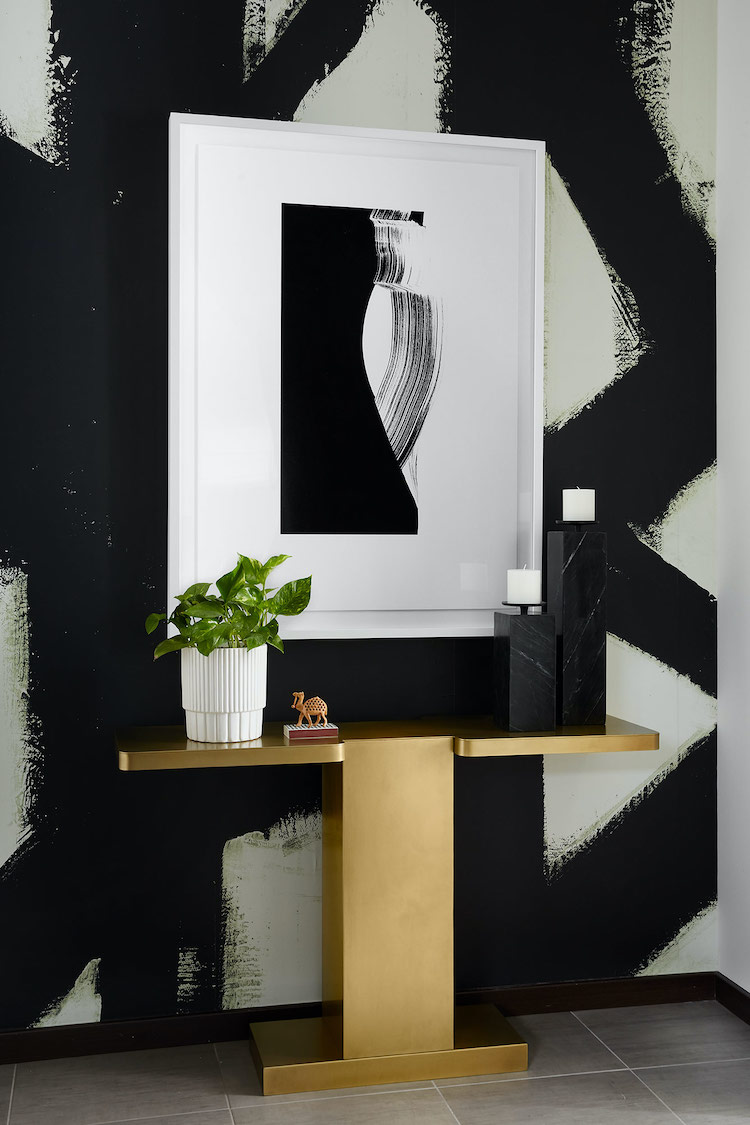
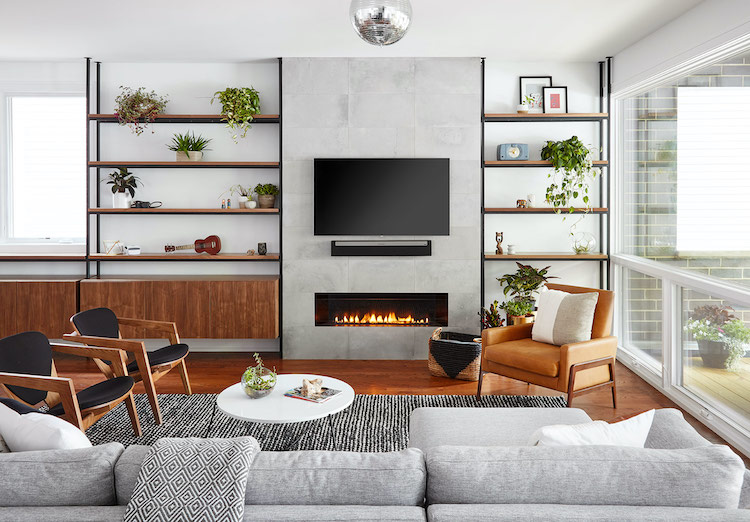 I’m so excited for todays post! I met Devon through social media and ended up working with her to help revamp our dining room. Aside from being incredibly talented, she was such a pleasure to work with and just got it. I asked her if she’d be interested in answering some frequently asked interior questions and she agreed to share some really great tips.
I’m so excited for todays post! I met Devon through social media and ended up working with her to help revamp our dining room. Aside from being incredibly talented, she was such a pleasure to work with and just got it. I asked her if she’d be interested in answering some frequently asked interior questions and she agreed to share some really great tips.
What tips do you have for designing smaller rental homes? What pieces are safe to invest in? What pieces have the most impact?
In general, it’s safest not to invest in any size-sensitive pieces (think dining tables or sectionals). Larger pieces like that are so dependent on the layout and size of the room they are in, and in my opinion, need to be bought specifically for each home (unless you get really lucky).
If you want to invest in some statement pieces that you’ll keep for years to come, choose pieces that can adapt in any space. In general, you’ll always find space in any home for a killer accent chair, area rug (if it’s too small for your next place, layer it on top of a jute rug!) or side table, so those can be splurged on guilt-free. Beds are another safe investment because in general, if you sleep in a King now, you’ll always sleep in a King. However, if you can only fit a Queen in your rental, and know that someday you’ll want a King, buy a more economical piece that will work for now.
My favorite pieces to splurge on for rentals, both because they are generally safe to relocate, and because they make a big impact in the home, are accessories and decor. Collect artwork as you travel…even if you don’t have a space to hang it now, you can store it under your bed and use it in your next place! Buy throw pillows for the sofa and accessories for the coffee table. They’ll add personality to the space and you can build upon those for your next home.
My biggest tip for smaller spaces, is to choose pieces that do double duty. Choose a coffee table that provides storage inside. Add poufs to your space…they can act as an ottoman when you’re watching a movie or provide additional seating when you have guests over.
My last tip, if you’re in a smaller apartment, is to incorporate wall mirrors! You’ll see mirrors on almost all of our projects because they expand the space and bounce light around, creating a really beautiful effect. I love working them into gallery walls sometimes too as an added surprise, like this one.
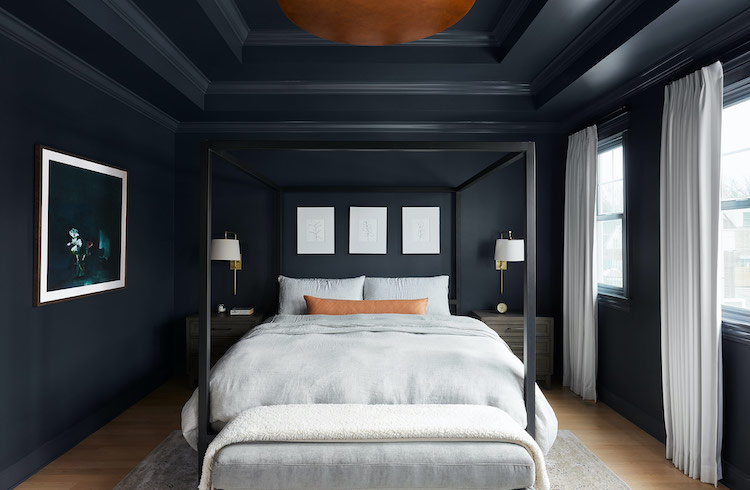 What are the benefits of hiring a designer? How does pricing typically work?
What are the benefits of hiring a designer? How does pricing typically work?
My advice is to always focus on what you do best and out-source everything else. Designing a home is a huge undertaking. Whether you are building a new house, renovating your home or simply moving into a bigger space that needs to be furnished, there are a million details to pay attention to, and like most things in life, if you don’t know what to look for or where to find solutions, it’s going to become a huge stressor, time suck and potentially much more expensive than it needs to be. I once met a client that had seven lounge chairs in her basement and two sofas because she kept ordering pieces and they didn’t fit her space properly. That is a HUGE waste of time and money, and something a designer could have taken care of in one swoop.
By hiring a designer, you have an ally. For furnishing a home, this is helpful, but in matters of construction, this is CRITICAL. You are going to have to make a lot of decisions quickly and change orders cost money and time during an already crazy process. Interior Designers (if they’re good!) will help identify your needs, both regarding function and aesthetic. They’ll then produce a design that addresses each of those meticulously, giving you a customized space that maximizes its potential for you and your family, while also taking a huge workload off your plate. Designers have trusted, go-to sources for everything, which means that while it would take you weeks of searching for the perfect tile or sofa, they know right where to look and can move on to the next thing. They’ll also mitigate any errors or changes during the process, saving you more money and time.
Regarding pricing, each designer or firm operates differently. Some charge based on hourly rates or some do a flat fee. In general, you should ask as part of an introductory process before hiring your designer to make sure you understand their billing structure.
How can I create my own Gallery Wall?
I love Gallery Walls because they can be whatever you want them to be! You can use existing pieces, and arrange them together, or you can buy all new pieces that have a similar aesthetic. You can even mix in some 3D pieces like wall-hanging planters or neon lights.
I actually created a guide to creating your own gallery wall complete with a shopping list and hanging guidelines. To get it, subscribe to our newsletter (the form should pop-up when you’re on our website) and you’ll get a link to download!
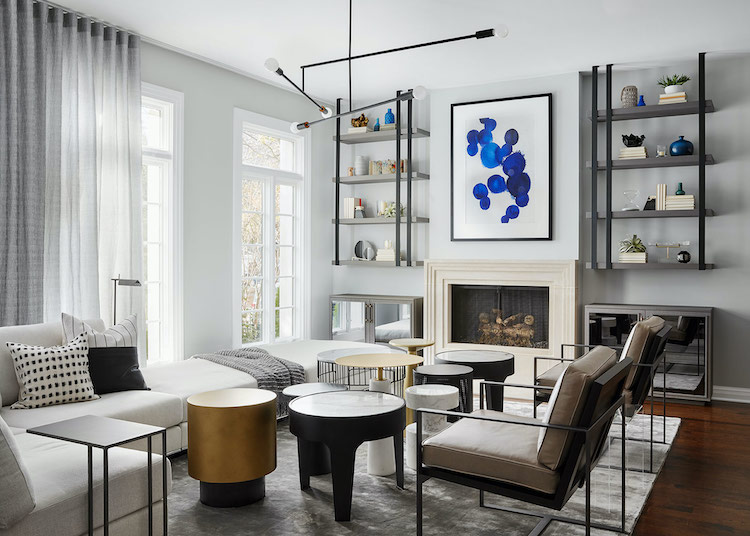
How can you make a modern home feel warm/inviting or blend traditional or modern decor?
It’s all about balance. If you have a traditional home and want to pull in modern furnishings, incorporate a few organic elements to help soften the crisp, clean lines and blend the two styles a bit (think natural wood, stone, and greenery).
A space always looks more complete if there are some cohesive elements tied together throughout the space. For example, if the home has a prominent wood tone carried throughout (like stained wood trim at doorways and windows), pull that wood tone into some of the furnishings as well. Even if they’re modern, it’ll stitch them together and make it feel intentional.
If you have a modern home and want to warm it up, bring in organic elements like wood, stone and greenery to soften the space and add a natural texture to the space.
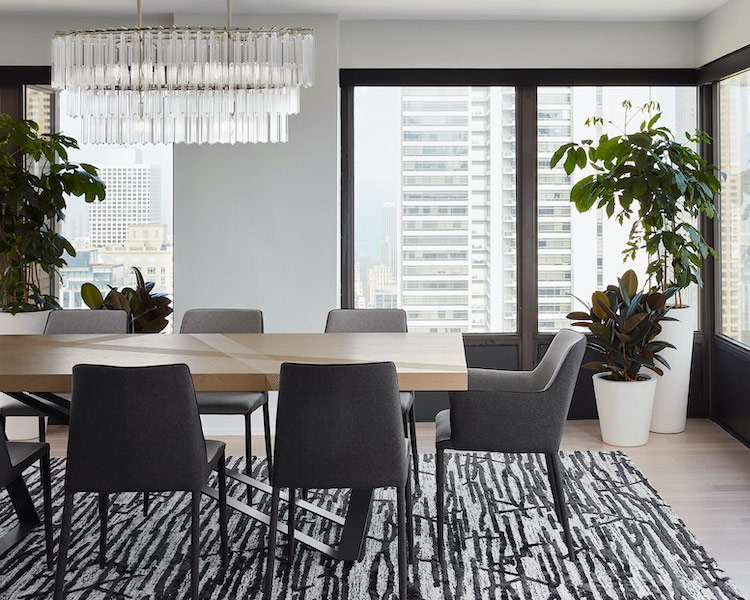
How will Covid affect the way we design our homes?
We have been pleasantly surprised with the amount our business has grown since Covid began, and I think that is an indicator of the fact that people in general are caring a lot more about the spaces they live in. People want their homes to function properly and provide a space that they feel happy in. I know that personally, having a functional, beautiful home makes me happier, more efficient and generally calmer. As we continue to navigate an increasingly stressful and scary world, I think it’s important for people to make sure their homes are a place of comfort and support during this time, and proper design is key for that.
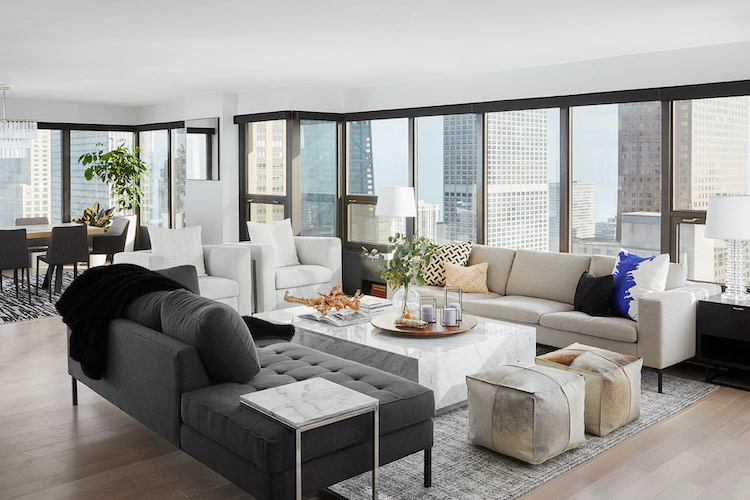
Where should we begin when designing a space?
I love this question! The first step, is you need to identify what styles really make you happy…and in particular, what details about that style do you respond well to? You’d be surprised how often clients show us photos of a room they like, but when we start diving into specific details in the photo…like the curve of the chair arm, or structure of the sofa, they start to pick apart details that they don’t like at all. It’s important to identify what elements you do like and how they work together to create a design that makes you happy. Start a Pinterest board or Instagram Collection and save every image you see that you like. Then, go back and look at all of them together…what common themes do you notice? This will start to give you some key insight into what elements you respond well to.
From there, measure your space and figure out what size pieces will fit. In general, keep 36-42″ clear for circulation paths and keep 18″ between your seating and coffee table. Once you know the sizes you need, start with the big pieces first (area rugs, sofas, dining tables, beds) and layer upon those.
Knit together cohesive elements throughout the home to make it feel thoughtful and complete. For example, carry the same two wood tones throughout, or the same metals or stones.
Or, if you’re ready to lean in and outsource…start by finding the perfect interior designer for you and shoot them an email.
*All photos from Devon Grace Interiors projects
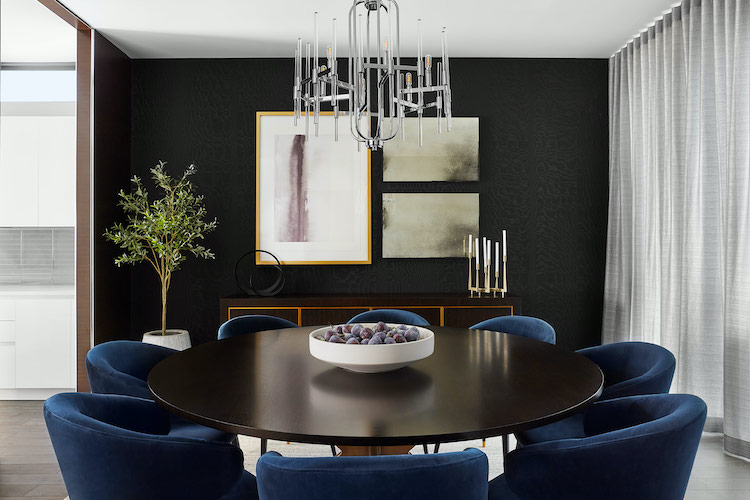
No comments:
Post a Comment